Russia on Tuesday accused the United States of seeking to sabotage the TurkStream gas pipeline, which transports energy resources from Russia to Türkiye and Europe.
The Kremlin’s remarks came a day after Moscow said it had downed nine Ukrainian drones that it claimed had tried to attack part of the infrastructure of the TurkStream and called the assault an “act of energy terrorism.”
The allegation – which Kyiv has not commented on – comes amid an escalating energy row between the two countries, almost three years after Russia launched its full-scale military offensive.
Speaking at a news conference in Moscow, Foreign Minister Sergei Lavrov alleged Washington is facilitating “terrorist” attacks on energy infrastructure and claimed there are plans to target TurkStream.
“The U.S. does not tolerate competition in any sphere, including energy. They are recklessly endorsing terrorist activities aimed at undermining the energy stability of the European Union,” Lavrov said.
“They are encouraging their Ukrainian proxies to disable TurkStream following the sabotage of Nord Stream,” he added.
The Russian Defense Ministry on Monday said the attack on TurkStream was aimed against a compressor station in the Krasnodar region of southern Russia, but the facility was working normally, and there were no casualties.
Kremlin spokesperson Dmitry Peskov was quoted by Russia’s TASS news agency later on Monday as calling the attack an “act of energy terrorism” and “very dangerous for European consumers.”
He said Lavrov and Gazprom CEO Alexei Miller had discussed the alleged incident with their Turkish counterparts.
Peskov called it a new link in a chain of actions that he said were dangerous for consumers and included explosions, the preparation of explosions, and sabotage of the Nord Stream pipeline between Russia and Europe.
TurkStream and Blue Stream, which run under the Black Sea to Turkey, are Russia’s last routes for supplying pipeline gas to Europe after Ukraine, at the start of the year, refused to renew a five-year transit deal that had allowed Russia to keep pumping gas across its territory despite the war between the two neighbors.
The United States last week rolled out fresh sanctions on Russia’s oil sector in another blow to Moscow’s vital hydrocarbon industry.
The Russian statement said falling fragments from one drone had caused minor damage to the building and equipment of a gas metering station at the compressor, but emergency teams had quickly repaired it.
The site is across from the Crimean peninsula – which was unilaterally annexed by Russia in 2014 and has been heavily targeted by Kyiv throughout the three-year conflict.
TurkStream runs for 930 kilometers (580 miles) under the Black Sea from the Russkaya compressor station outside the city of Anapa to Kıyıköy in northwestern Türkiye before connecting to overground pipelines that run up through the Balkans to western Europe. Compressor stations are used to stabilize the pressure and flow rate of gas.
‘Attack on sovereignty’
After the alleged attack, European Union member Hungary, which receives Russian gas via the route, called on its “security and operability” to be “respected by all,” saying the assault constitutes an attack on the sovereign rights of the countries that use it.
“The security of energy supply is a sovereignty issue, so any action that threatens the security of our energy supply must be seen as an attack on sovereignty,” Foreign Minister Peter Szijjarto said on Facebook.
“The TurkStream pipeline is critical for natural gas supply in Hungary and Central Europe. This freight route has been operating reliably for many years; both carriers and transit countries adhere to their contractual obligations and behave consistently,” Szijjarto stated.
Austria and Slovakia had contracts for Russian gas via the now-canceled Ukrainian transit route, with both countries saying they had secured alternative supplies.
The Kremlin on Monday also accused the U.S. of “destabilizing” the world energy market through fresh sanctions on Russian oil producers.
The U.S. and Britain on Friday announced sanctions against Russia’s energy sector, including oil giant Gazprom Neft and 180 ships it says are part of Moscow’s “shadow fleet.”
The move came just days before U.S. President Joe Biden leaves office.
“Such decisions cannot but lead to a certain destabilization of the global energy market,” Peskov told reporters.
The 27-member EU has been reducing its dependence on Russian gas since Moscow launched its invasion of Ukraine in February 2022.
Despite imports via pipeline having fallen, several European countries have increased their purchases of Russian liquefied natural gas (LNG), which is transported by sea.
Russia also used to ship gas to Germany via the Nord Stream 1 pipeline that runs under the Baltic Sea.
The pipelines were the target of a sabotage attack in 2022, which also hit one of the two Nord Stream 2 pipelines – a second undersea gas link between Russia and Germany that was never put into operation.
Ukrainian officials have previously denied their country’s involvement in those explosions that damaged the pipeline.


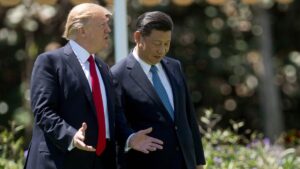
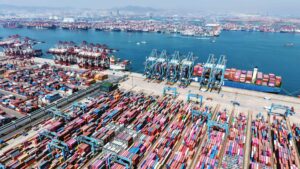

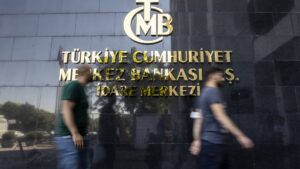






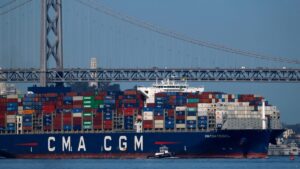






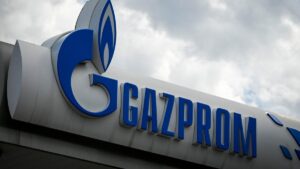
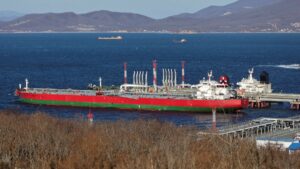
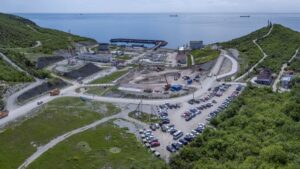










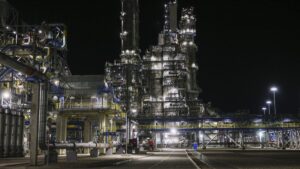








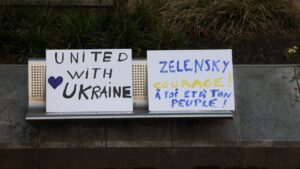




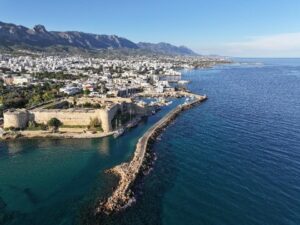
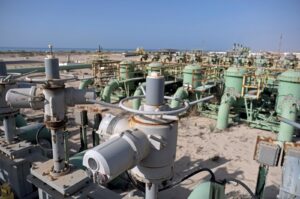




Be First to Comment